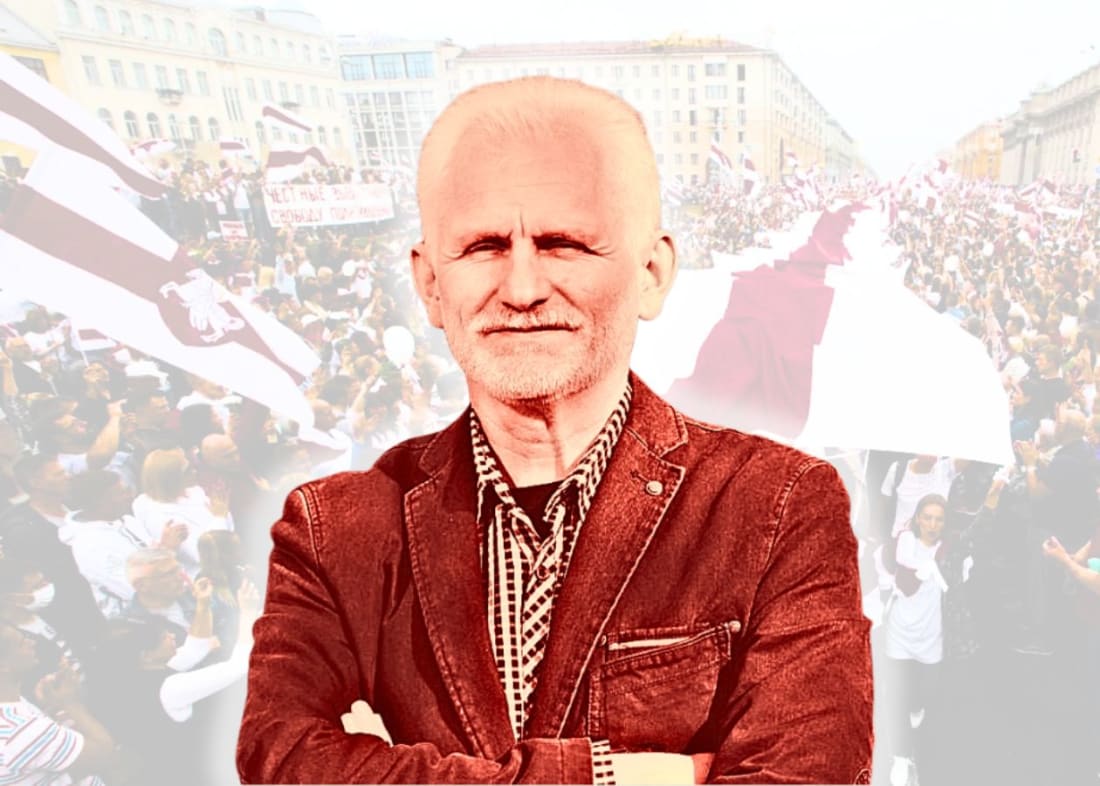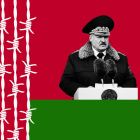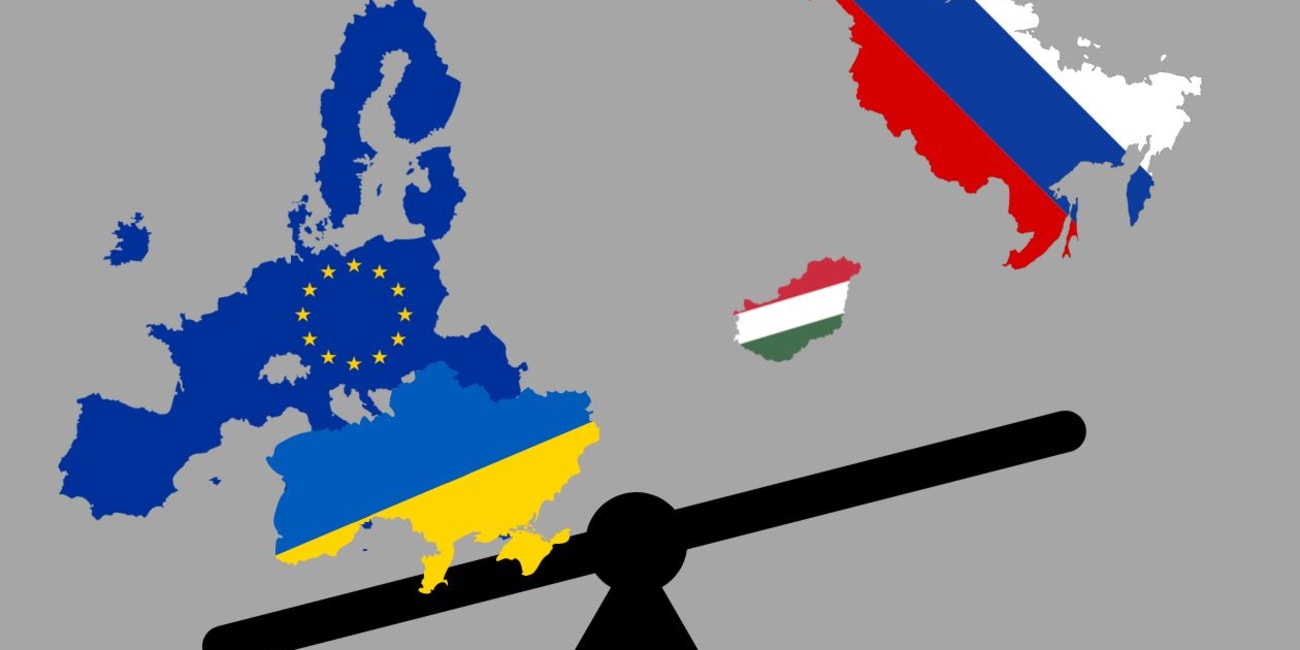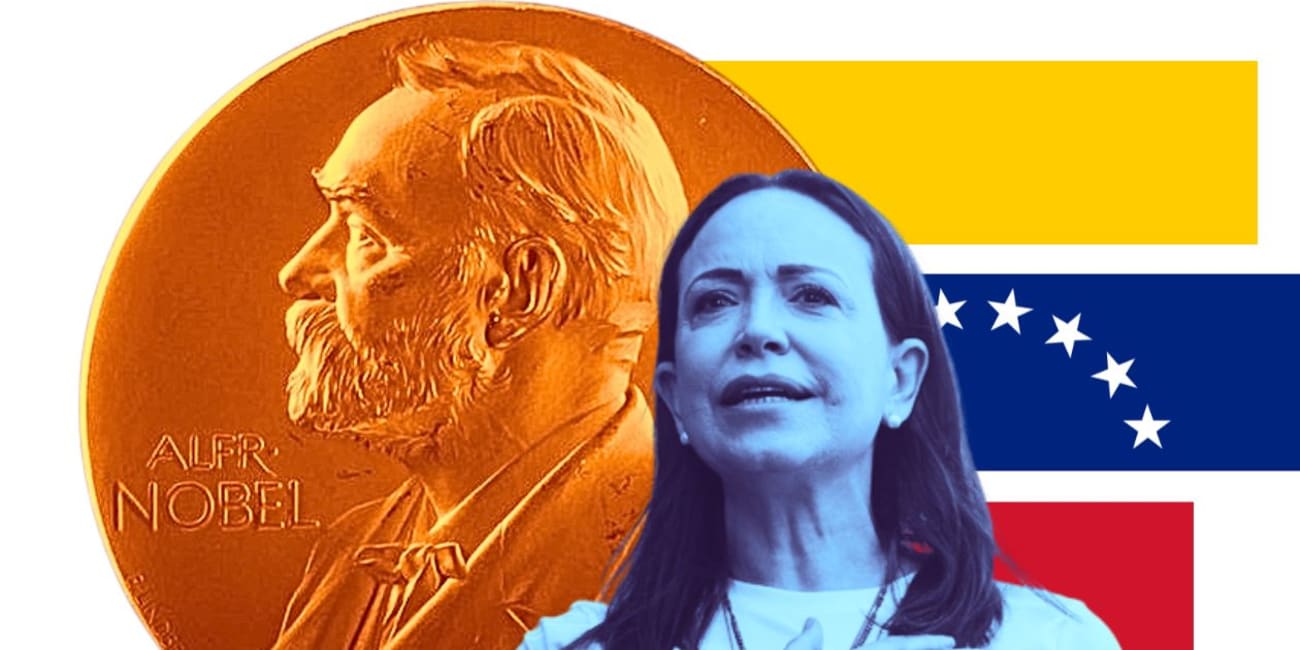|
 |
‘Don’t Forget Belarus’: A Political Prisoner’s Wife Speaks Out
Natallia Pinchuk calls her husband, Nobel peace laureate Ales Bialiatski, an ‘extraordinary individual’ and shares hope for her nation: ‘We will definitely be free.’
A more positive note from Garry Kasparov: I recently won a rematch against my fellow World Chess Champion Vishy Anand, and my friend and RDI Hero of Democracy Maria Corina Machado was awarded the Nobel Peace Prize. Call them small wins, but we don’t have enough good news these days. To celebrate, I’m giving away three chess sets, autographed by yours truly. Anyone signed up as a premium subscriber by October 31, 2025 will be automatically entered to win.1.
Remember, I don’t take one kopek from your paid subscriptions. All proceeds support the work of the Renew Democracy Initiative, including direct aid to Ukraine, amplifying the work for political dissidents, and getting more content up on The Next Move.
— Garry Kasparov, Chairman, Renew Democracy Initiative
Jay Nordlinger is a senior resident fellow at the Renew Democracy Initiative and a contributor at The Next Move.
In the second week of September, 52 political prisoners were released in Belarus. This was part of a deal between the country’s dictator, Alexander Lukashenko, and the Trump administration.
For its part, the administration eased sanctions on the Belarusian national airline, Belavia, and said it would look into reopening the U.S. embassy in Minsk, which closed in 2022, for security reasons.
(To learn more about this, consult a piece by Andrei Sannikov, published here at The Next Move. Sannikov is a Belarusian politician in exile who was once a political prisoner.)
September’s 52 releasees were deported to Lithuania. Interestingly, one of them refused to go. He said he would rather die in his own country, where he had a right to be, in prison or not. That was Mikola Statkevich, a veteran politician and dissident. His whereabouts are currently unknown.
Statkevich merits an article of his own.
According to human rights groups, there are some 1,300 political prisoners in Belarus right now. The Lukashenko regime has arrested and imprisoned approximately 80 people since the release of the 52 last September.
There is no shortage of Belarusians to imprison. Lukashenko can always find more bargaining chips, if he wants them.
Not among the 52 was Ales Bialiatski, who has been in prison since 2021. He is no ordinary prisoner: he is a Nobel peace laureate. He shared the Nobel prize with two civil society organizations—one in Russia, one in Ukraine—in 2022.
His wife, Natallia Pinchuk, is in exile. “I was hoping he would be released along with the others,” she tells me, “but, unfortunately, that did not happen.”
Since the Nobel prizes began in 1901, the Norwegian Nobel Committee has awarded the peace prize to several political prisoners. The first was Carl von Ossietsky, a prisoner of the Nazis, who received the prize for 1935. He died in 1938, still a prisoner.
In 2010, the committee awarded Liu Xiaobo, a political prisoner of the Chinese dictatorship. The prize did not improve his conditions, much less instigate his release. He died, surrounded by state agents, in 2017.
In 2023, the committee gave the prize to Narges Mohammadi, a political prisoner in Iran. Does the prize afford her a measure of protection? Will it make the regime think twice, for example, before outright killing her?
Perhaps.
Natallia Pinchuk says that the prize to her husband, Bialiatski, “has had a positive impact.” It “ensures that Belarus is not overlooked by the international community, and this gives hope to the democratic world.”
But the prize has neither won Bialiatski’s release nor improved conditions for him. In fact, those conditions are worse. Bialiatski has not been able to receive a letter from family or friends since December 2022 (when the prize to him was conferred).
Also, “Ales’s health has deteriorated sharply because of the harsh conditions,” says Ms. Pinchuk. “Chronic illnesses have worsened.”
Furthermore, “his vision has become blurred and his legs are swelling.” She knows this because the recently released prisoners have told her.
Ales Bialiatski is a man of extraordinary courage. He was born in 1962, when the Soviet Union still had about 30 more years to go. Early on, he was a human rights activist, and also a Belarusian nationalist. That is, he thought that Belarus was its own country with its own people, who had their own language and culture.
He would write,
It is a dramatic mistake to separate human rights from the values of identity and independence. I have been involved in the independent underground movement since 1982; in fact since I was a young man of 20. Its aim was to achieve a democratic independent Belarus in which human rights would be respected. There can be no Belarus without democracy and there can be no human rights without an independent Belarus.
Alexander Lukashenko was elected president of Belarus—democratically—in 1994. In short order, he put an end to democracy, assuming dictatorial powers.
More from The Next Move:
In 1996, Bialiatski founded a human rights organization, Viasna, meaning “spring.” He took his inspiration from, among others, Václav Havel, the Czech dissident who became his country’s first post-communist president.
Liu Xiabo, incidentally, also took his inspiration from Havel, in helping to launch Charter 08 in China.
In Belarus, Bialiatski was first imprisoned in 2011. During this imprisonment, he received many awards around the world, including one from the US State Department. His admirers wished to highlight his case and help keep him alive. Bialiatski was released in 2014.
He had seven years outside of prison. In 2021, he was seized again.
In conversation with Natallia Pinchuk, I ask, “Did you figure, when you married him, that he would be in and out of prison?” She answers,
I knew from the very beginning that prison was a possible destination for him. My father warned me about this before we got married, telling me that Ales was facing the threat of Siberia. Back then, the Soviet Union still existed, and everyone knew where those who thought differently were sent. We sensed the danger of such a scenario.
But Ales consciously chose his path. I supported him and hoped that fate would turn out differently.
They met at a wedding—Natallia’s cousin’s. Ales was in the band, playing guitar.
“What did you like about him?” I ask. Natallia says,
It’s hard to say, specifically. It was more a generally positive impression of the man. Later, as I got to know him better, he revealed himself to be an interesting, extraordinary individual. All this, combined with his intelligence and commitment to national ideals and justice, drew me to him and made me a like-minded person.
In 2022, the Norwegian Nobel Committee split the peace prize three ways. It went to Memorial, the civil society organization in Russia (now banned by the Kremlin and in exile); the Center for Civil Liberties, in Kyiv; and, individually, Bialiatski.
The committee said,
The Peace Prize laureates represent civil society in their home countries. They have for many years promoted the right to criticize power and protect the fundamental rights of citizens. They have made an outstanding effort to document war crimes, human rights abuses, and the abuse of power. Together, they demonstrate the significance of civil society for peace and democracy.
The Belarusian dictatorship did not let Bialiatski write a Nobel speech (much less attend the ceremony). His wife, representing him in Oslo, read from a variety of previous writings.
Here is a passage, written by Bialiatski and read by Natallia:
I look inside myself, and my ideals have not changed, have not lost their value, have not faded. They are always with me, and I guard them as best I can. They are as if cast from gold, immune from rusting.
Many people wonder, on hearing about a political prisoner such as Ales Bialiatski, “Is there anything I can do?” Natallia Pinchuk says, “People in the outside world can do a lot.”
They can write letters to prisons holding dissidents. They can support people and organizations in exile. They can influence their own governments, to support imprisoned or embattled democrats.
And they can “fight for everyone who stands for truth and justice.”
Finally, I ask Ms. Pinchuk whether she has anything else to say—whether there is something she would like people to know. She has three things to say.
First,
I want everyone to remember: Hundreds of thousands of my compatriots bravely took to the streets in 2020 to defend the right of self-government. Lukashenko was not elected that year.
Yes, he stole that election, as he had stolen previous ones.
Second,
Belarusians en masse are against Russia’s aggressive war, and that’s why Lukashenko, although he helps Russia in every other way, didn’t dare send the Belarusian Army to Ukraine. It’s not the Belarusians but Lukashenko who is complicit in this aggression.
Third, and “most important,” says Natallia Pinchuk, is this:
Ales Bialiatski and Belarusians in general have a sense of dignity and national pride. We will definitely be free. So don’t forget about Belarus and Belarusians.
On the fence about becoming a paid subscriber? We have a special offer to make the decision easier for you: $49 for an annual subscription—a 30% discount—now through November 8. Paid subscribers get exclusive benefits like access to interactive Zoom calls with Garry Kasparov. Anyone who signs up as a premium subscriber by October 31 will be automatically entered to win a chess set signed by Garry Kasparov.1
More from The Next Move:
1. Please see full rules and regulations for The Next Move 2025 raffle.



